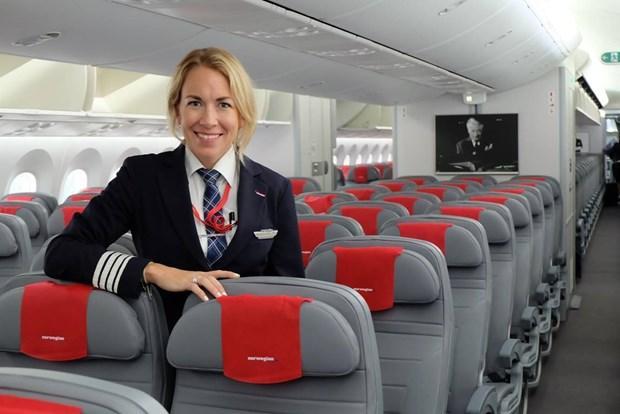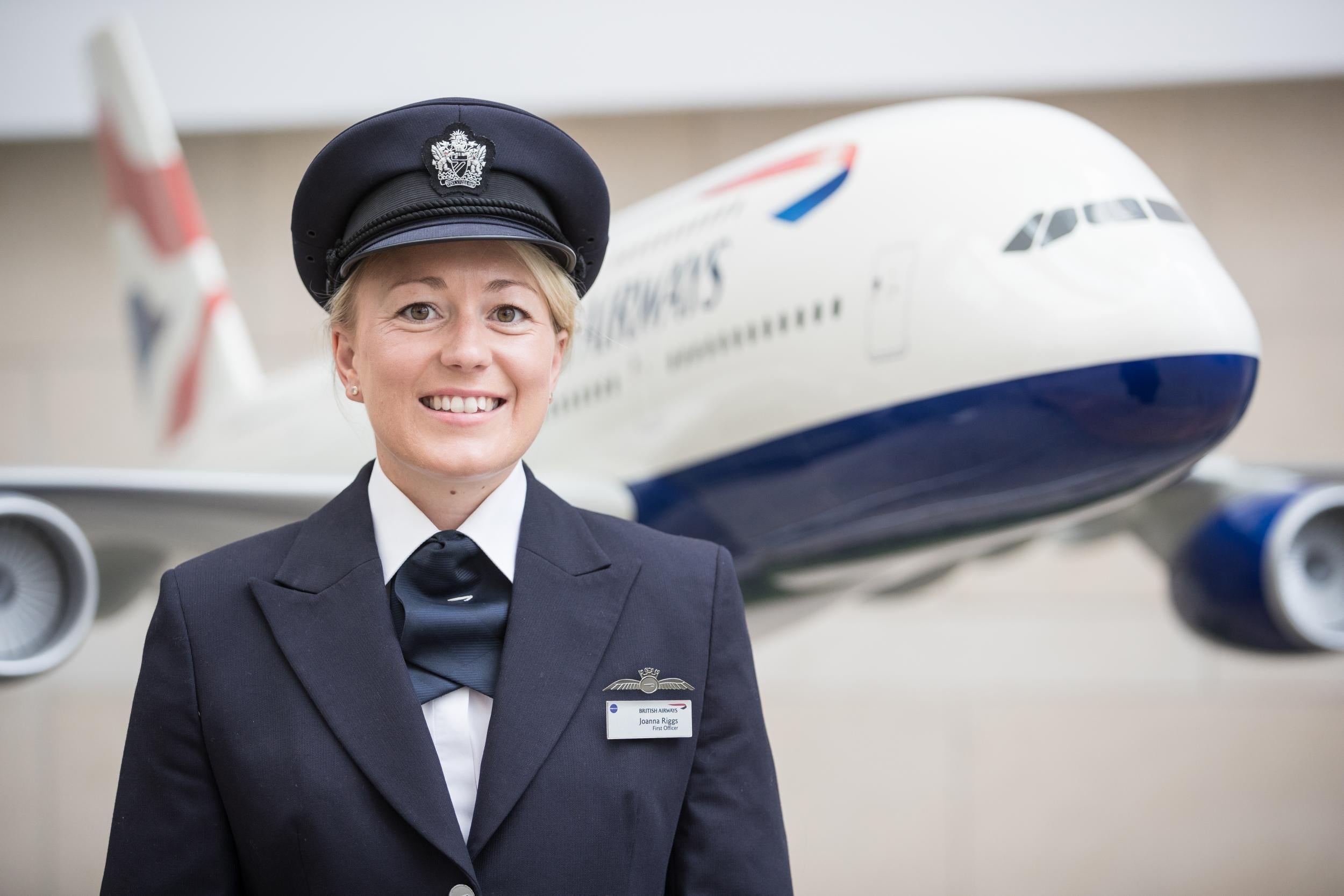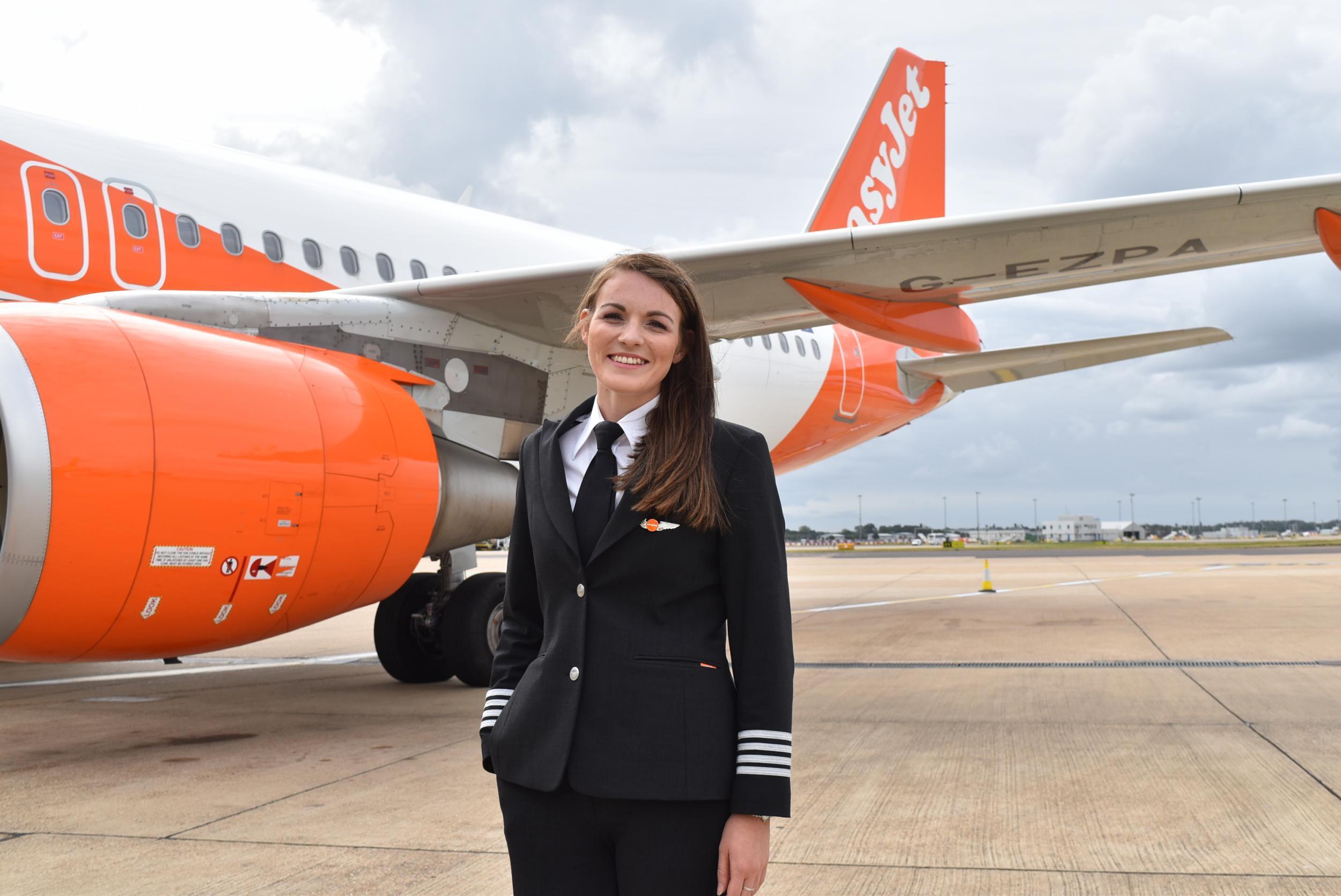The Independent's journalism is supported by our readers. When you purchase through links on our site, we may earn commission.
International Women's Day: Four female pilots discuss life on the flightdeck
We speak to four female pilots who buck the industry trend
Your support helps us to tell the story
This election is still a dead heat, according to most polls. In a fight with such wafer-thin margins, we need reporters on the ground talking to the people Trump and Harris are courting. Your support allows us to keep sending journalists to the story.
The Independent is trusted by 27 million Americans from across the entire political spectrum every month. Unlike many other quality news outlets, we choose not to lock you out of our reporting and analysis with paywalls. But quality journalism must still be paid for.
Help us keep bring these critical stories to light. Your support makes all the difference.
Although female pilots only make up around 4.5 per cent of commercial pilots in the UK, women have been working in aviation industries around the world since the beginnings of air travel.
Traditionally, however, women’s jobs in aviation were limited to non-flying roles such as flight attendants, flight simulation training and air traffic control.
While the number of women working as pilots has risen significantly, it remains far too low, particularly given the fact that it is one of the few industries in the world with genuine pay parity.
In India, women make up 11.6 per cent of all commercial airline pilots, but globally this figure remains around the 3 per cent mark. To mark International Women’s Day, we spoke to four female pilots about their experiences working for commercial airlines.
Here’s what they had to say:
Jessica Sundquist: 787 Dreamliner captain at Norwegian

Jessica Sundquist, a Swedish 787 Dreamliner captain for Norwegian, has spoken extensively about being a woman in the industry. In the past she’s spoken about the concept of “putting your femininity aside” in order to succeed.
Sundquist says today that she felt she “didn’t have to do it”, but also wanted to fit into the industry “without being known as ‘the girl’”.
Today, times are changing, she says, and more women are joining the industry – but it’s not all good news. “Despite working hard to get to where I am today as a captain at one of the most modern and exciting airlines, the industry still has a lot more work to do to give women more opportunities,” she says
“To make it easier and more attractive for women to work as pilots, airlines could allow more flexibility. As with other industries, there is a need for a deeper understanding of the challenges when combining work with family.”
In the future, she’d like the discussion on gender inequality to remain “open and ongoing”, but argues that real action also needs to take place to make any difference.
“We can talk about inequalities forever, but without making any changes we will stand still,” she says. “I believe women deserve to have more power and influence in companies, and life in general. Only then will true change happen.”
Joanna Riggs: A380 first officer at British Airways

First officer Joanna Riggs says she was never “particularly exposed to aviation as a career choice”, but became a BA cabin crew member after university in order to see more of the world.
“As cabin crew in my early twenties, I quickly became hooked on the aviation industry,” she says. “I saw that young guys and girls were flying planes, which inspired me to follow in their footsteps.”
She says that entering such a highly male-dominated profession wasn’t daunting, but that she felt “lucky to have two other females” on her course. Colleagues have always been supportive in Riggs’ experience as have – for the most part – passengers, though some are “surprised” when they see a female pilot.
“I hope it will one day be normal to everyone,” she adds, saying that of the 469 passengers she has on each British Airways A380 flight, most react positively, with some giving a “thumbs up or a girl power sign”.
As for gender differences on the flight deck, Riggs says, “We are very professional on the flight deck so it doesn’t matter what the gender, race or sexuality of my colleague is.
“Flying with a fellow female is always a treat though. My brother is also a British Airways pilot, and although I haven’t flown with him, I get the feeling we would be very similar. I know that all my colleagues have been trained to a very high standard.
So should more women become pilots? Of course, says Riggs: “Go for it! It’s a fantastic career. Along with others I am working hard on social media to promote the role from a lifestyle perspective and to make the profession more visible to future generations.” Follow her on Twitter @ladyspeedbird.
Lucy Tardrew: Boeing 747 captain at Virgin Atlantic

Lucy Tardrew had always wanted to join the RAF, she says, but it was never allowed to happen – because ”they weren’t taking girls at the time”.
Instead, she travelled to America, where she trained before becoming a flying instructor. After returning to the UK and converting her licences, she began flying night mail – “literally all the posts around the country at night” – before stints flying executive jets, and last-minute jobs including air ambulances and freighting transplant organs, before joining Virgin 23 years ago.
Tardrew is enthusiastic about the company, but is saddened that the ratio of women in the industry as a whole remains low. As for challenges in the workplace, she’s never experienced any discrimination.
“From my perspective, if you’re confident and you can do the job, you’re a pilot. It doesn’t matter whether you’re male or female.”
Noting the rare pay equality in the piloting industry, Tardrew feels the reason there aren’t more female pilots is down to the fact that ”there aren’t enough female role models for schoolchildren to think, ‘I’m going to become an airline pilot’.”
This year to celebrate International Women’s Day, she piloted a Virgin Atlantic flight from Gatwick to Orlando with an all-female crew, including both pilots and cabin crew.
Kate McWilliams: captain at easyJet

At 26, Kate McWilliams became the youngest commercial captain in the world.
“I love being a captain for easyJet,” she says. “And I’m really happy to be working for an airline that is working hard to increase the number of female pilots.”
Flying was always her goal – but she didn’t realise how far she could take it. “I joined the air cadets at 13-years-old, but it wasn’t until much later that I realised I could become a commercial pilot,” she says.
“EasyJet is aiming to inspire young women, with the Amy Johnson Flying Initiative and their sponsorship of the Brownies, giving girls aged seven to 10 the opportunity to earn an Aviation Badge. The work it’s doing is really important.”
The Amy Johnson Flying Initiative was launched in October 2015 with the aim of doubling the number of female new entrant pilots, to 12 per cent, over a two-year period.
After achieving its aim in the first year, the airline set a target of 20 per cent for new entrant cadet pilots in 2020.

Join our commenting forum
Join thought-provoking conversations, follow other Independent readers and see their replies
Comments